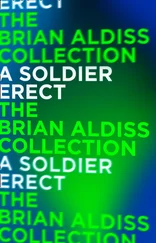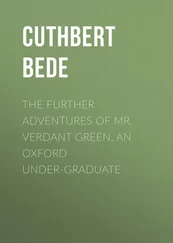Because there was not just one trial for me. _There were two_. The first in July, the other in October.
It all went too well, Papi! The court was not blood-red, like a slaughterhouse; it was more like an enormous boudoir. In the flooding light of that marvelous July day, the hangings, the carpets and the judges' robes were almost pale pink. And in this court, a smiling, kindly, rather skeptical presiding judge, so little convinced by what he had read in the file that he opened pro. ceedings like this: "Charrière, Henri, as the indictment does not entirely correspond with what we should have liked to see in it, will you explain your case to the court and the jury yourself?"
The president of an assize court asking the defendant to lay open his case! You remember that sun-filled July assize and those wonderful judges? It was too good to last, Papi. Those judges conducted the proceedings with such impartiality, the president calmly and honestly looking for the truth, asking the pigs embarrassing questions, worrying Goldstein, pointing out his contradictions, and allowing my lawyers and me to ask him awkward questions-it was too splendid; it was sunlit justice, a holiday sitting with the judges in your favor.
The first important witness, already primed by the pigs, was the mother. I don't think it was out of bad faith that she had adopted the pigs' insinuations. She really did so unconsciously.
The mother no longer said that she and the commissaire had heard "Papillon Roger." Now she stated that what she had heard was, "It's Papillon. Goldstein knows him." She had forgotten the Roger and she had added the "Goldstein knows him," words that Commissaire Gérardin and Inspector Grimaldi did not hear. Odd that a commissaire should not write down something as important as that, don't you think?
Maître Gautrat, the lawyer appearing for the family, wanted me to ask the victim's mother to forgive me. I said to her, "Madame, I do not have to ask your forgiveness because I did not kill your son. I express my sorrow for your grief; that is all I can do."
But Commissaire Gérardin and Inspector Grimaldi changed nothing of their first statement: Legrand had said, "It was Papillon Roger," that was all.
Now the key witness came forward: Goldstein. Using a recording machine at 36, quai des Orfèvres, this witness had made five or six statements, three of which were used. Each one accused me; it did not matter if they were contradictory-each time they brought a fresh piece of wood to the framework the police were building up. Sitting on the bench thirty-six years later, I could see Goldstein as if he were right in front of me. He spoke in a low voice: he scarcely raised his hand when he said, "I swear it."
When he had finished his statement, Maître Beffey went for him. "Goldstein, how many times have you met Inspector Mayzaud 'by chance'? He himself states that he has met you and talked to you about this case 'by chance' several times. It's curious, Goldstein. In your first statement you said you knew nothing about the affair; then you knew Papillon; after that you said you had met him on the night of the crime, before it was committed; then he tells you go to Lariboisière and see how Lepetit is getting on. How do you explain these differing statements?"
Goldstein's only reply was to repeat, "I was afraid, because in Montmartre Papillon is terribly dangerous."
I made a gesture of protest and time president said to me, "Defendant, have you any questions to ask the witness?"
"Yes, Monsieur le Président." I looked straight at Goldstein. "Goldstein, turn this way and look me in the face. What is it that makes you lie and accuse me falsely? What crime of yours does Mayzaud know about? What crime are you paying for with these lying statements?"
The shit trembled as he looked me in the face, but he did manage to bring out the words "I'm telling the truth" quite distinctly.
I could have killed the swine! I turned toward the court. "Gentlemen of the court, gentlemen of the jury, the public prosecutor says I am an intelligent, sharp-witted, knowing character; but the witness's evidence shows me to be a perfect idiot, and I'll prove it to you. Admitting something as important as this, telling a man you don't know at all you've just killed his friend, is the act of a total imbecile. Yet I don't know Goldstein." And turning toward Goldstein I went on, "Goldstein, please name one single person in Paris or in the whole of France who can say he has seen us talking together even once."
"I don't know anyone who could testify to that."
"Right. Please name a bar, restaurant, or eating place in Montmartre, Paris, or anywhere in France where we have eaten or drunk together even once."
"I've never eaten or drunk with you."
"Very well. You say the first time you met me that extraordinary night I had two men with me. Who were they?"
"I don't know them."
"Nor do I. Now say quickly, without hesitating, where I told you to meet me with the answer you were to bring back from the hospital, and say whether you mentioned that place to the men who went with you. And if you did not mention it to them, why not?"
No answer.
"Reply, Goldstein. Why don't you reply?"
"I didn't know where to find you."
Maitre Raymond Hubert: "So my client sends you on an errand as important as this-he sends you to find out Roland Lepetit's condition, and you did not know where to give him the answer? It is as absurd as it is unbelievable!"
Yes, it was unbelievable all right; but it was even more unbelievable that the whole indictment had been allowed to be built up on the successive accusations of this dreary jerk who, although carefully coached by the pigs, did not even have wits enough to give a quick answer.
The president: "Charrière, the police claim that you killed Lepetit because he called you an informer. What have you to say to that?"
"I've had dealings with the police six times, and each time I came away with the charge dismissed or an acquittal, except for my four months' suspended sentence. I've never been arrested with another man; I've never had another man arrested. It makes no sense that when I am in the hands of the police I stay mum, and when I'm at liberty I inform on my friends."
"An inspector says you are an informer. Call Inspector Mazillier."
"I state that Charrière was an informer, one who enabled me to arrest several dangerous individuals, and that this was known in Montmartre. As to the Lepetit affair, I know nothing about it."
"What have you to say to that, Charrière?"
"It had been on Maître Beffey's advice that I had asked for this inspector to be called at the inquiry; Maitre Beffey had told me Mazillier knew the truth about the murder of Lepetit. And now I see that both my counsel and I fell into a horrible trap. Inspector Mazillier, when he advised Maître Beffey to call him, said he knew all about the killing; my counsel believed him, and so did I. We imagined that either he was an honest cop or there was some rivalry between him and Mayzaud that led him to give evidence about his crime. But now, as you see yourself, he says he knows nothing about it.
"On the other hand, it's clear that the inspector's statements at last provided the missing motive for my alleged crime. This statement, coming from a policeman, was a godsend: it preserved the framework of the accusation and gave some body to an indictment that just didn't hold together. Because there's no doubt that without the help given by Mazillier, the indictment would have fallen to pieces, in spite of all Inspector Mayzaud's efforts. The dodge is so obvious that it's astonishing the prosecution should ever have used it."
I fought on and I said, "Gentlemen of the court, gentlemen of the jury, if I'd been a police informer, one of two things would have happened: either I wouldn't have killed Roland Lepetit for calling me a squealer-because a character as low as that takes such an insult without batting an eyelid-either I wouldn't have killed him at all, or, if I had shot him, the police would have played the game: they would never have gone after my blood with all this zeal and all this clumsiness, if I'd been so useful to them. More than that, they would have closed their eyes or fixed some gimmick to make it look as though 1 was acting in legitimate self-defense. Plenty of precedents of that kind could be quoted; but fortunately for me they don't apply. Monsieur he Président, may I ask the witness a question?"
Читать дальше
Конец ознакомительного отрывка
Купить книгу











